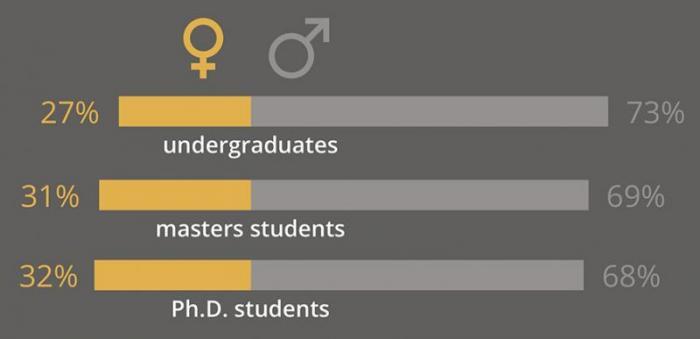Women are underrepresented “at almost every level” within the discipline of economics in UK universities, according to a new report co-authored by a Cambridge economist.
In fact, Dr Victoria Bateman says the new report for Royal Economics Society (RES) reveals signs of “stagnation and retreat” in the closing of gender gaps across the study of economics – with female intake (relative to male) actually falling at both undergraduate and master’s levels over the last two decades.
The report ‘Gender Imbalance in UK Economics’ marks 25 years since the establishment of the RES Women’s Committee, which was set up to monitor and advance the representation of women in UK economics.
“The economy affects everyone, and economists need to represent us all,” said Bateman, an Economics Fellow at Gonville and Caius College. “If they don’t, that’s a major barrier to building a solid understanding of the economy.
“Across all students, from undergraduate to PhD, there are twice as many men studying economics as there are women in UK universities. While in many respects the discipline of economics has come a long way in the 21st century, the gender gap is clearly still real, persistent and in some ways getting worse.”
Bateman and colleagues argue that attracting, retaining and promoting female economists is a “particular problem” within UK academia when compared to areas of government and third sector organisations such as think tanks.
Only a quarter (26%) of economists working in UK academia are female, and only 15% of economics professors are women, compared to 38% of the economists at the UK Treasury and 44% of researchers at economic think tanks.
Among UK students entering the discipline, the gender gap has actually widened since 2002, when 31% of economics undergraduates and 37% of master’s students were women. By 2018, this had fallen to 27% and 31% respectively. Bateman says these statistics show that the closure of the gender gap in economics “isn’t simply a matter of time”.
Watch a video and read the full story
Reproduced courtesy of the University of Cambridge
